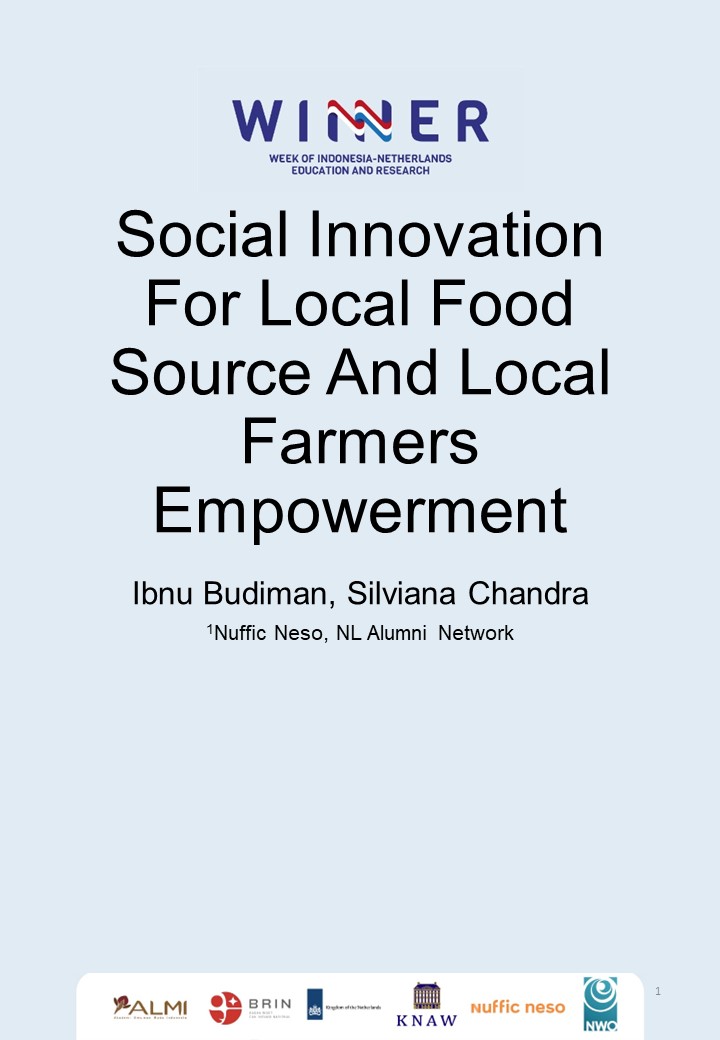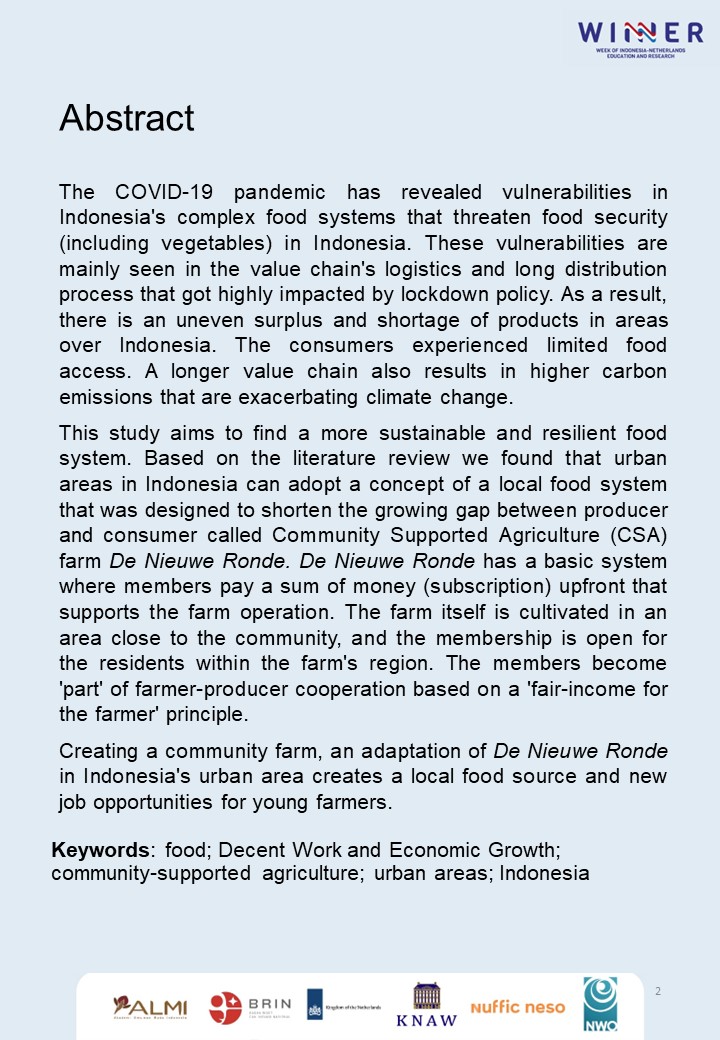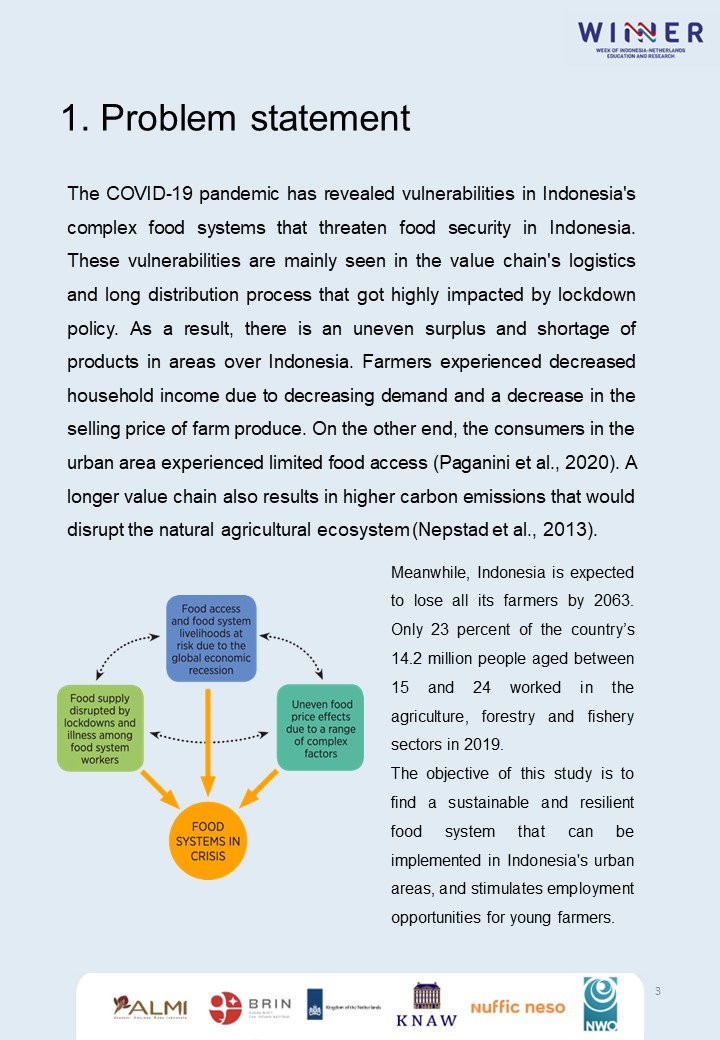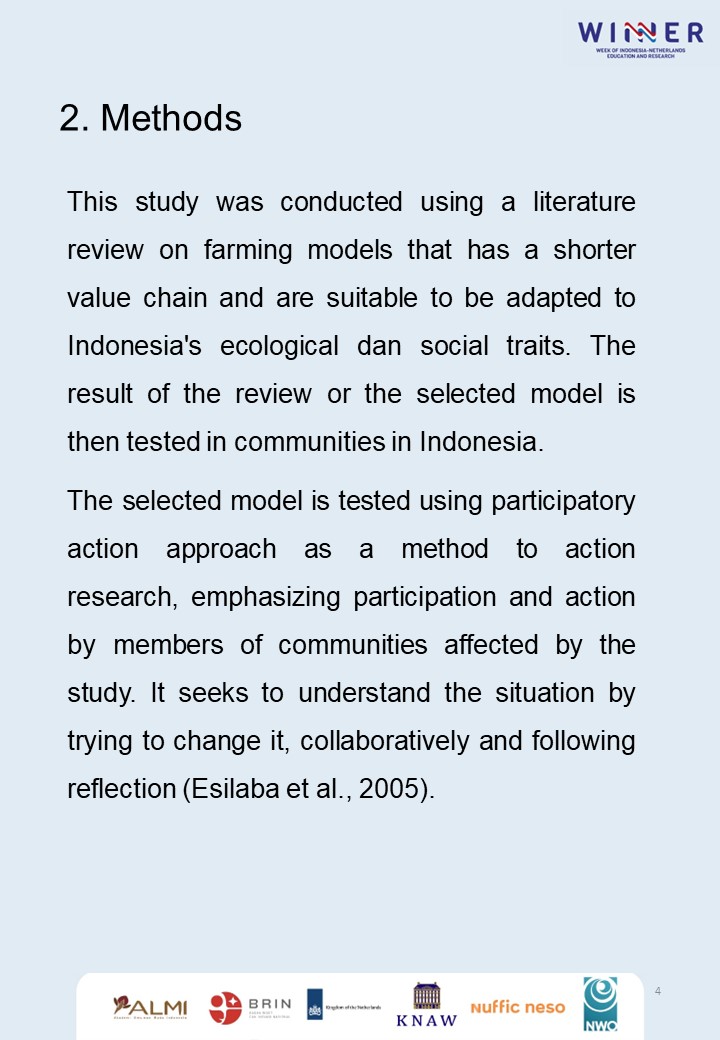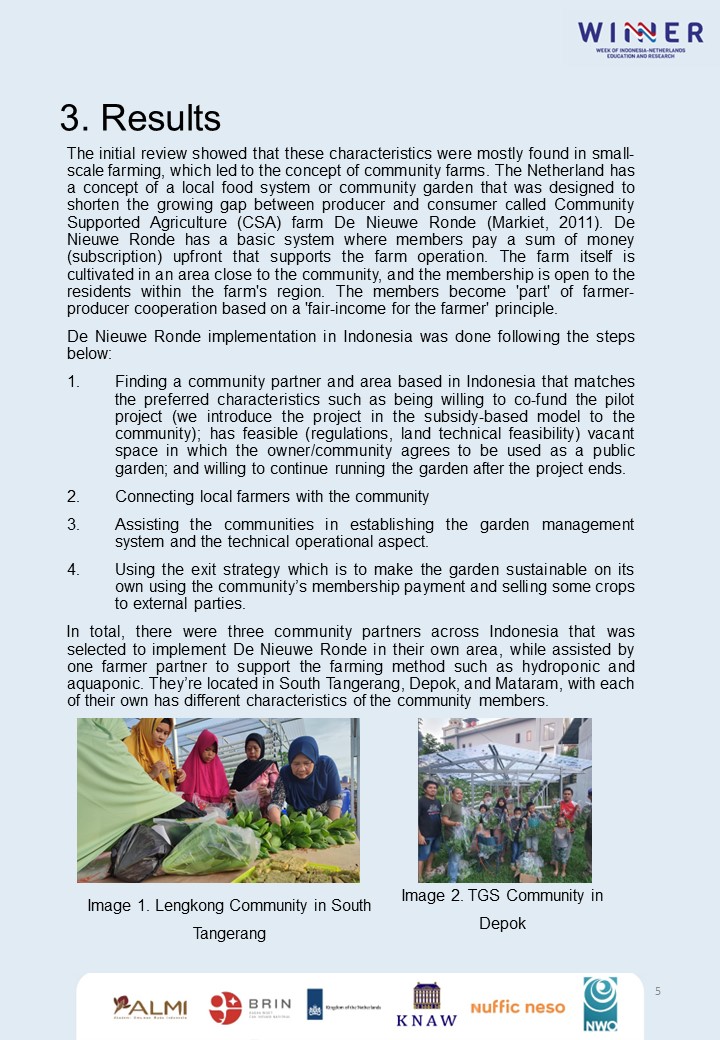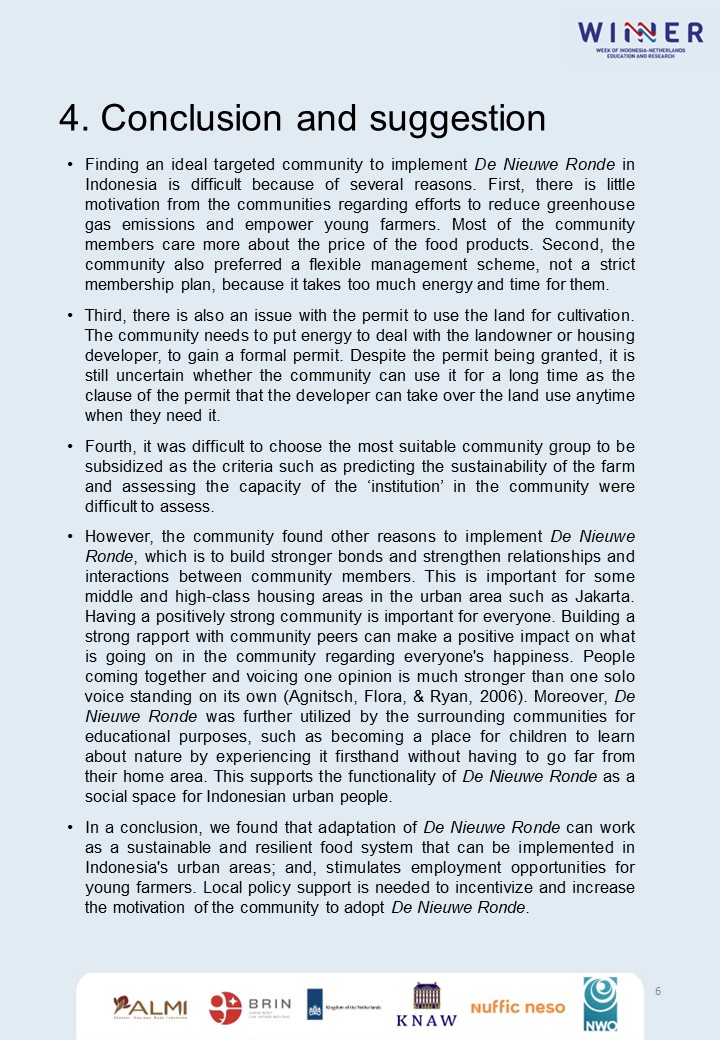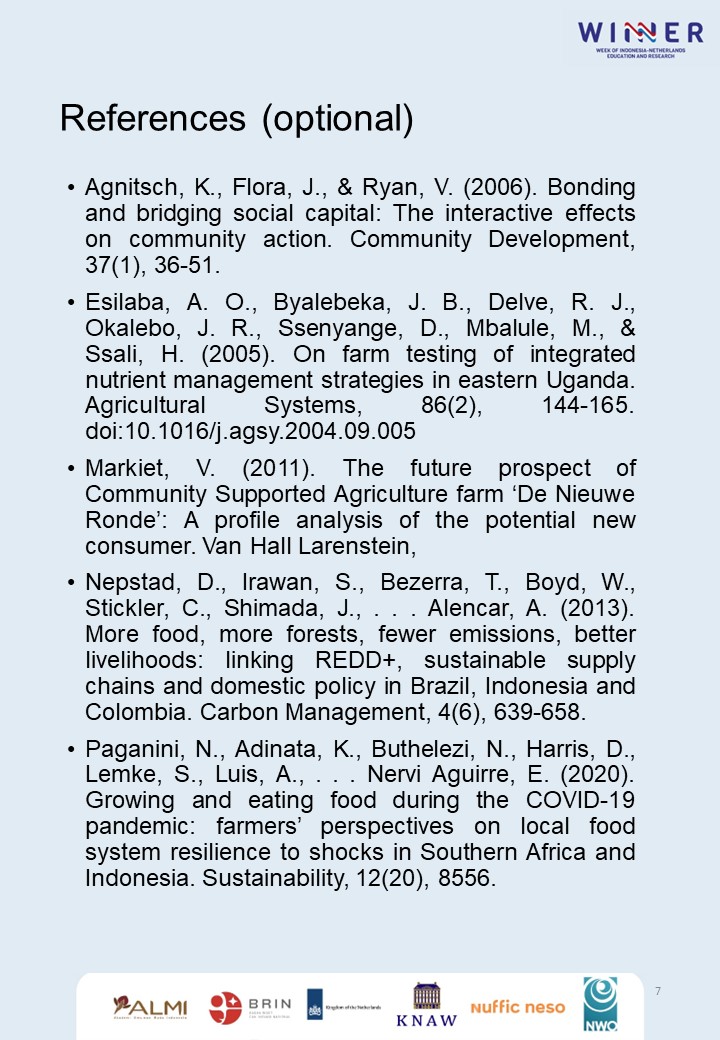Authors: Silviana Chandra
The COVID-19 pandemic has revealed vulnerabilities in Indonesia's complex food systems that threaten food security (including vegetables) in Indonesia. These vulnerabilities are mainly seen in the value chain's logistics and long distribution process that got highly impacted by lockdown policy. As a result, there is an uneven surplus and shortage of products in areas over Indonesia. The consumers experienced limited food access. A longer value chain also results in higher carbon emissions that are exacerbating climate change.<br /> This study aims to find a more sustainable and resilient food system. Based on the literature review we found that urban areas in Indonesia can adopt a concept of a local food system that was designed to shorten the growing gap between producer and consumer called Community Supported Agriculture (CSA) farm De Nieuwe Ronde. De Nieuwe Ronde has a basic system where members pay a sum of money (subscription) upfront that supports the farm operation. The farm itself is cultivated in an area close to the community, and the membership is open for the residents within the farm's region. The members become 'part' of farmer-producer cooperation based on a 'fair-income for the farmer' principle.<br /> Creating a community farm, an adaptation of De Nieuwe Ronde in Indonesia's urban area creates a local food source and new job opportunities for young farmers.<br />
